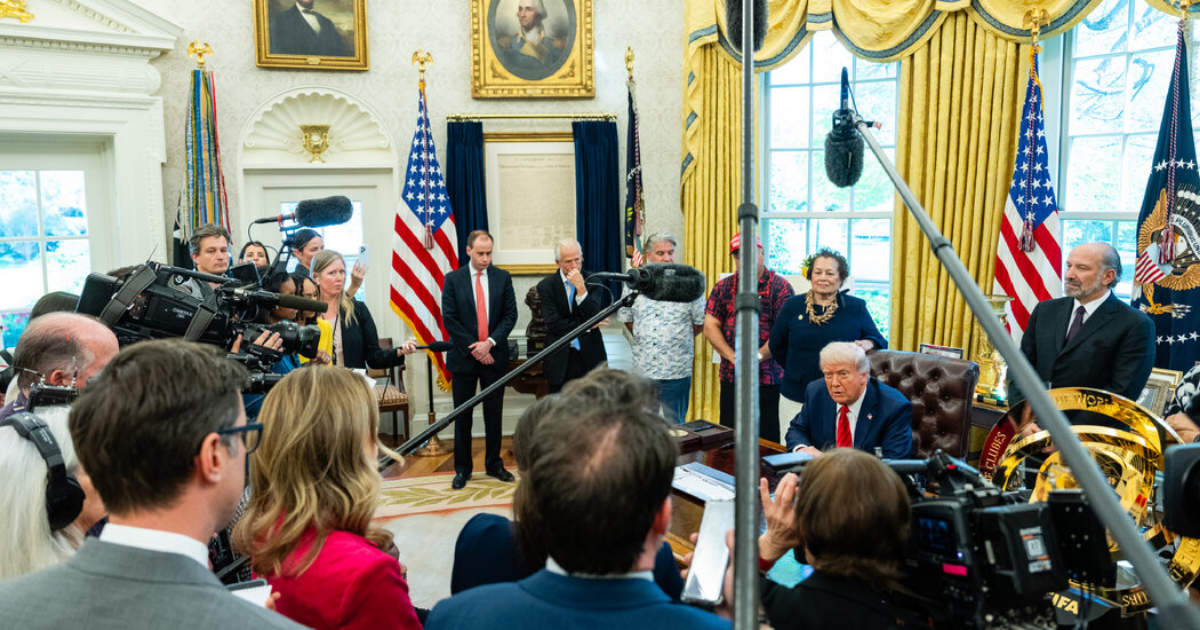A federal judge in Washington on Friday denied a request from The Associated Press to enforce his order requiring the White House to restore the outlet’s full access to President Trump.
Lawyers for The A.P. had accused the White House of defying the order, at first by continuing to bar its journalists from presidential events, then by issuing a policy eliminating the regular, permanent spot in the press pool shared by three independent newswires.
Even though A.P. journalists had been allowed into some events in recent days, the lawyers said, their access had not been equal to that of reporters from Reuters, one of the other newswires.
The press pool is a small, rotating group of journalists who cover smaller events at the White House and press briefings on Air Force One, as they follow the president on trips in and outside of Washington. The new policy puts the newswires into a larger group of print media outlets that includes The New York Times — effectively reducing The A.P.’s access.
The judge who ruled on Friday, Trevor N. McFadden of the Federal District Court for the District of Columbia, who was appointed by Mr. Trump, said that he needed more time to determine whether the new policy was discriminatory.
For now, he said, Mr. Trump and the White House could be seen as acting in “good faith” to comply with his order, with the new policy being “facially neutral.” But he added that he would consider it problematic if the policy resulted in “viewpoint discrimination.”
Last week, Judge McFadden found that the Trump administration had violated the First Amendment by excluding The A.P. from the press pool since February, after the news organization said that it would continue to use the term “Gulf of Mexico” to refer to the body of water that Mr. Trump renamed the Gulf of America.
The Associated Press is considered one of the world’s leading newswires, distributing articles, photographs and videos to thousands of U.S. news outlets, as well as 900 international sites.
During a hearing on Friday, Judge McFadden appeared skeptical that the new policy was not intended to continue excluding The A.P. in defiance of his order.
He warned the government of “consequences” if evidence emerged that the White House was not complying with his order.
“That would be a way more serious problem,” he said. “There could be consequences.”
At one point, he raised his voice with a government lawyer, Jane M. Lyons, after she cut him off mid-sentence. He grilled Ms. Lyons over how he could ensure compliance from the government, and asked when he would know whether the Trump administration was defying his order.
“It’s very hard to see how there is compliance when records show that nothing changed for three days,” Judge McFadden said, referring to records from the past few days, when A.P. journalists were excluded from participating in the White House pool.
He added: “I don’t have many experiences with parties violating my injunction.”
Zach Montague contributed reporting.
